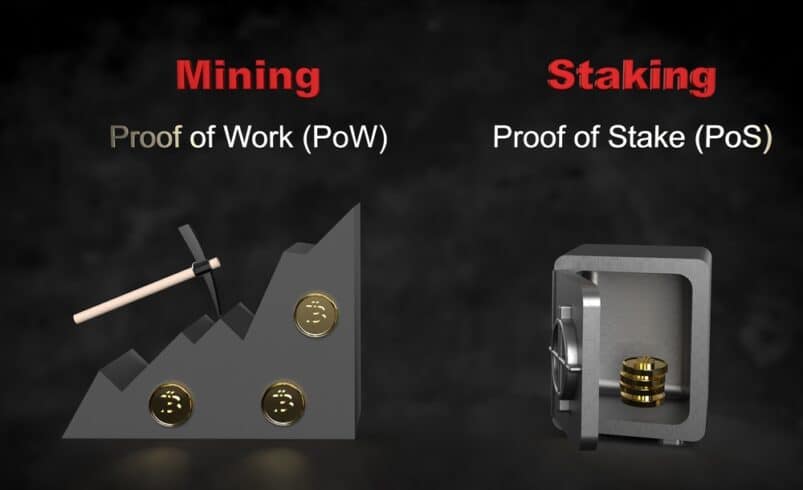A Comprehensive Understanding Offline Staking

Understanding Offline Staking
This is a method of engaging in a proof-of-stake (PoS) blockchain network without divulging the staked tokens’ private keys to the online network. Specific blockchain networks use the PoS consensus approach to verify transactions and protect the network.
On the contrary, proof-of-work systems, for instance, Bitcoin, bank on miners utilizing their computer power to handle complex mathematical puzzles to produce new blocks and authenticate transactions.
Offline Staking Versus Traditional Staking
Participants lock their money in an online wallet connected to the network, enabling them to participate in the validation and consensus process. On the contrary, offline staking presents another strategy that allows users to stake their digital assets in the absence of an internet connection.
In offline staking, staking duties can be assigned to a third-party validator/staking pool. Since it reduces the amount of funds vulnerable to internet threats, this critical distinction enhances the safety of online staking.
Security Measures in Offline Staking
Offline staking utilizes several security measures, for instance, multi-signature wallets and cold storage, ensuring strong security via consistent updates. Cold storage stores private keys and wallet data offline to minimize susceptibility to internal threats.
Air-gapped systems provide an extra security level by restricting potential attack paths and being physically isolated from the internet. Password and encryption keys should be generated and stored safely, highlighting the importance of secure initialization and setup measures.
Multisignature wallets demand numerous private keys for transaction approval, enhancing security. Strong network security systems, for instance, intrusion detection systems, security mechanisms, virtual private networks, and firewalls, fortify defenses against external threats.
How Offline Staking Functions
Using this staking mechanism, users give a third-party staking node, normally run by a staking pool, to authenticate transactions and create new blocks. The primary innovations are offline staking operations and secure storage of private keys.
Participants minimize the likelihood of online hacking efforts by keeping their staking assets in cold storage points or hardware wallets. Prior to starting offline staking, users should create a staking wallet and a staking node, including data concerning security settings and network connections.
Participants earn extra tokens as staking benefits in exchange for their involvement. By reducing susceptibility to online threats, the process enhances security and attracts persons intending to earn rewards without sacrificing asset security.
Distributing Staking Rewards in Offline Staking
When a person delegates tokens to a validator, they contribute to the overall staked amount controlled by the same validator. This validator is involved in the block creation and validation process.
The delegators acquire the offline staking rewards based on the staking pool’s specific reward distribution mechanism. This model takes into account variables such as every participant’s staked tokens as well as the duration of their staking commitment.
Some networks utilize a performance-founded strategy that rewards participants based on the validator’s efficacy and fruitful block validation. Others might embrace a proportional distribution approach that involves distributing payments to delegators based on their stake percentage.
Benefits From Offline Staking
A major advantage is the increased security achieved by methods such as cold storage as well as the utilization of hardware wallets. Secondly, offline staking strikes a compromise between the ability of users to earn rewards as well as the security of their holdings by permitting them to assign staking tasks to third-party nodes.
Offline staking permits users to be part of the consensus process without the energy-intensive mechanisms. As such, it contributes to a more eco-friendly and sustainable approach to blockchain validation.
Final Thought
An example of a major concern is the likely loss of staking benefits because of assigning duties to unaffiliated nodes. Users should cautiously select trustworthy staking nodes or pools to ensure reasonable reward distribution and reliability.
The safety of online storage tactics, for instance, cold storage or hardware wallets, is critical since breaches of these devices may lead to the loss of staked accounts. Another challenge is the intricacy of management and setup, which evokes the need for technical know-how and might be an obstacle for persons with less experience.
Zone Crypto Invest provides exposure for numerous crypto businesses, and we invite you to join our community! Connect with us through our Telegram chat for any questions. Given the volatile nature of cryptocurrencies, always conduct thorough research before investing. Many articles on our website are sourced from guest writers or are paid content, and they might not reflect the views of Zone Crypto Invest's internal team. The opinions in these pieces may not always coincide with Zone Crypto Invest's stance. We do not vouch for the accuracy, quality, promotions, or any other aspects showcased on our platform. Please refer to our detailed terms of service and disclaimer for further information.








